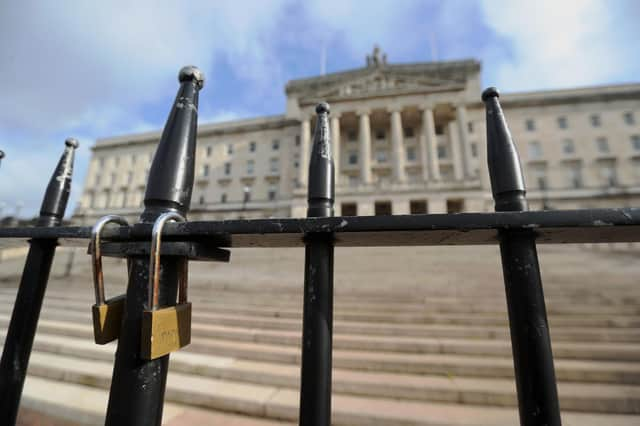Ben Lowry: Two things to watch out for in 2023, whether Stormont returns and whether strikes falter


But if I was to focus on two sets of events that will be revealing I would say, one, whether Stormont will return and, two, whether UK strikes UK will escalate or fizzle away.
That devolution in Northern Ireland has come to stalemate is not surprising – the surprising thing is that DUP-Sinn Fein power-sharing ever got off the ground.
Advertisement
Hide AdAdvertisement
Hide AdWe can forget how implausible such an arrangement seemed as recently as 2006. I remember an astute commentator scolding the UK government for “hallucinating” about an agreement between those two parties. Yet it happened.
It is painful for unionists to admit that Martin McGuinness – for all his past as an IRA leaders – was central to the period of relative stability for the institutions after 2007. Like Peter Robinson, he had authority in his community and knew how not to goad the other side, and knew when to stay silent. Michelle O’Neill shows little sign that she will ever have the confidence for such tact.
Events of recent years, such as Brexit and the surge in woke extremism, have highlighted the near impossible nature of mandatory coalition between political irreconcilables (unless, like Mr Robinson and Mr McGuinness, the key protagonists are actually pragmatic).
We should be no more surprised by SF-DUP stalemate than we would be if Bernie Sanders and Donald Trump were unable to share power, or Jeremy Corbyn and Nigel Farage.
Advertisement
Hide AdAdvertisement
Hide AdThe problem for unionism is that, despite the constitutional implications to the end to unfettered trade within the UK, it is always clear that ultimately only unionism, not Sinn Fein, will be made to pay a price for suspension of Stormont.
And even if London was determined to overhaul the protocol, which for much of 2022 it seemed to be, its ability to secure a deal acceptable to unionists has been slashed by Tory turbulence – as the EU well knows.
With regard to the strikes, we should find out in 2023 an answer to the question: Who governs Britain?
This was asked by the then prime minister Edward Heath, when he called a snap general election to try to outwit the unions 1974 – and lost. It ushered in a second election and ultimately a Labour government that left the UK even more in thrall to the Unions than before.
Advertisement
Hide AdAdvertisement
Hide AdMy fear is that there is now little stomach for hard political decisions on matters such as pay and debt and inflation. There is not even the will to explain to the public the things that we can afford as a country and the things we can’t.
Ben Lowry (@BenLowry2) is News Letter editor